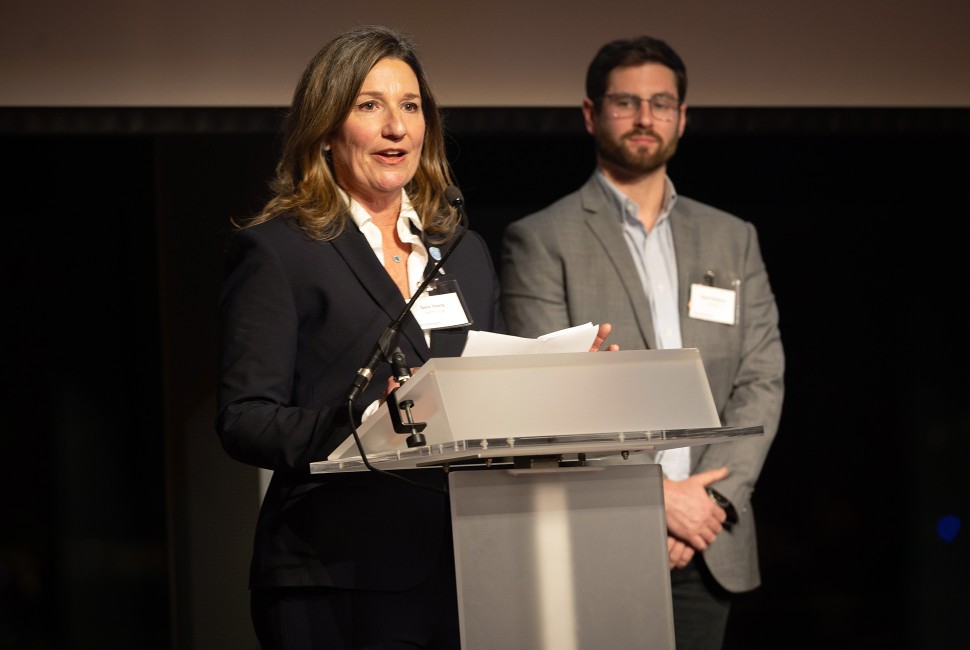In what has been an annual campus tradition for 35 years, Northwestern paid tribute this week to faculty members who have brought distinction to the University by earning important external recognition from societies and agencies around the world.
President Michael Schill and Provost Kathleen Hagerty hosted honorees and guests at the Faculty Recognition Dinner on Feb. 17 at the Kellogg Global Hub.
This year, 201 faculty were recognized for the 252 prestigious awards and honors they earned between November 2023 and November 2024.
“Northwestern’s trajectory over the past decade has been remarkable,” Schill said, “and much of the credit goes to the people in the room — the remarkable work you undertake in our labs, our classrooms and in the community.”
Northwestern faculty were elected fellows of the American Academy of Arts and Sciences, the National Academy of Sciences, the National Academy of Engineering, the National Academy of Inventors and the Guggenheim Foundation. Several others received lifetime achievement awards from organizations ranging from the American Academy of Orthotists and the College of American Pathologists to the International Association for Travel Behavior Research and the Pediatric Heart Transplant Society, among others.
Several early career faculty were hailed for their recognition by the Alfred P. Sloan Foundation, the National Science Foundation and the Pew-Stewart Scholars in Cancer and Biomedical Sciences.
Provost Hagerty thanked members of the multidisciplinary Faculty Honors Committee and introduced two faculty members, Dayne Swearer and Sera Young, who shared the stage in highlighting their respective research.
Swearer is an assistant professor of chemistry and chemical and biological engineering. He is also a fellow in the nanoscience and technology division at Argonne National Labs. He investigates how to manipulate electromagnetic energy at the nanoscale and funnel it into the driving force for chemical reactions. Swearer’s lab addresses some of the biggest challenges in global sustainability, including CO2 conversion, zero-carbon energy carriers and the catalytic upcycling of waste plastics. He is honored this year as a recipient of the Packard Fellowship.
Young, a professor of anthropology and Morton O. Schapiro Faculty Fellow at the Institute for Policy Research, has dedicated her career to understanding how women, especially in low-resource settings, cope to preserve their health and that of their families.
Her current research is focused on quantifying universal experiences with water insecurity and unpacking the consequences.
Young led a large team in the development of the Water InSecurity Experiences Scales. She is honored this year as a recipient of the Scrimshaw Mid-Career Award in Global Nutrition from the American Society for Nutrition.


